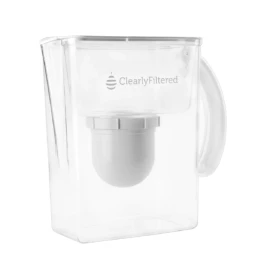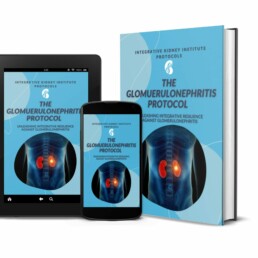We combed through multiple medical journals looking for the latest research on the Integrative approach to kidney health. We know your time is valuable, so we curated and summarized these studies for you. Welcome to the InKidney February Research and News.
February Research and News
Inflammation mediates the association between high dietary acid load and the progression of CKD
In a study published ahead of print in the Journal of Renal Nutrition, investigators looked at the link between dietary acid load, serum albumin, and the progression of CKD in 188 post-menopausal women over a period of 36 months.
Dietary acid load was estimated from potential renal acid load calculated using urinary measures of chloride, phosphate, sodium, potassium, calcium, and magnesium (UPRAL). Serum albumin levels were used as a marker of inflammation.
A 25 mEq/day increase in UPRAL was inversely associated with serum albumin and a 17% risk of decline in kidney function.
Mediation analysis indicated that the drop in serum albumin was responsible for 34% of the association between dietary acid load and the decline in kidney function.
The study suggests that inflammatory response might be a potential pathway explaining the effects of systemic acid load on the progression of kidney disease.
Join us to end the kidney disease epidemic and receive the FREE Report “5 Pitfalls to Avoid When Caring for Kidney Patients”
A classic conventional research study found that magnesium supplementation did not slow vascular calcification in CKD
In this study that was published ahead of print in the journal of the American Society of Nephrology, investigators isolated the benefit of magnesium supplementation on vascular calcifications in CKD.
They enrolled 148 patients with an eGFR between 15 mL/min and 45 mL/min and randomly assigned them to receive oral magnesium hydroxide 15 mmol twice daily or a matching placebo for 12 months.
Then they looked at the coronary artery calcification (CAC) score after 12 months and adjusted for baseline CAC score, age, and diabetes mellitus.
Median eGFR was 25 mL/min at baseline, and median baseline CAC scores were 413 and 274 in the magnesium and placebo groups, respectively.
Despite plasma magnesium increasing significantly during the trial in the magnesium group, the baseline-adjusted CAC scores did not differ significantly between the two groups after 12 months.
The problem with this study is the following:
1. The baseline CAC was significantly higher in the magnesium group than in the placebo group. It is possible that that group had a higher risk and inflammation than the placebo group.
2. Magnesium doesn’t work alone. The study should also assess other variables such as vitamin D, K, Calcium, and phosphorus, among others.
3. The increased deaths in the magnesium group could be just due to the higher baseline CAC.
4. Twelve months are not enough to study a process that takes years.
Can you think of other issues with this study? Email us at info@inkidney.com
Gender-affirming hormone therapy may affect measures of kidney function
This systematic review and meta-analysis of 26 studies published in CJASN indicated that gender-affirming hormone therapy might increase blood levels of creatinine (indicating potential kidney dysfunction or simply a change in lean muscle mass) in transgender men.
At 12 months after initiating gender-affirming hormone therapy, blood levels of creatinine increased by 0.15 mg/dL in transgender men and decreased by -0.05 mg/dL in transgender women.
No study reported the impact of gender-affirming hormone therapy on other markers or measures of kidney function.
An accompanying editorial notes that studies are needed to investigate the mechanism through which gender-affirming hormone therapy is associated with changes in creatinine and whether it independently affects kidney function.
Join here to receive FREE monthly updates on the latest research in Integrative Nephrology and tips on managing kidney disease straight to your inbox.
We would love to hear your feedback. Let us know what you think of these educational materials and if you like us to focus on specific topics. Please email us at info@inkidney.com.




